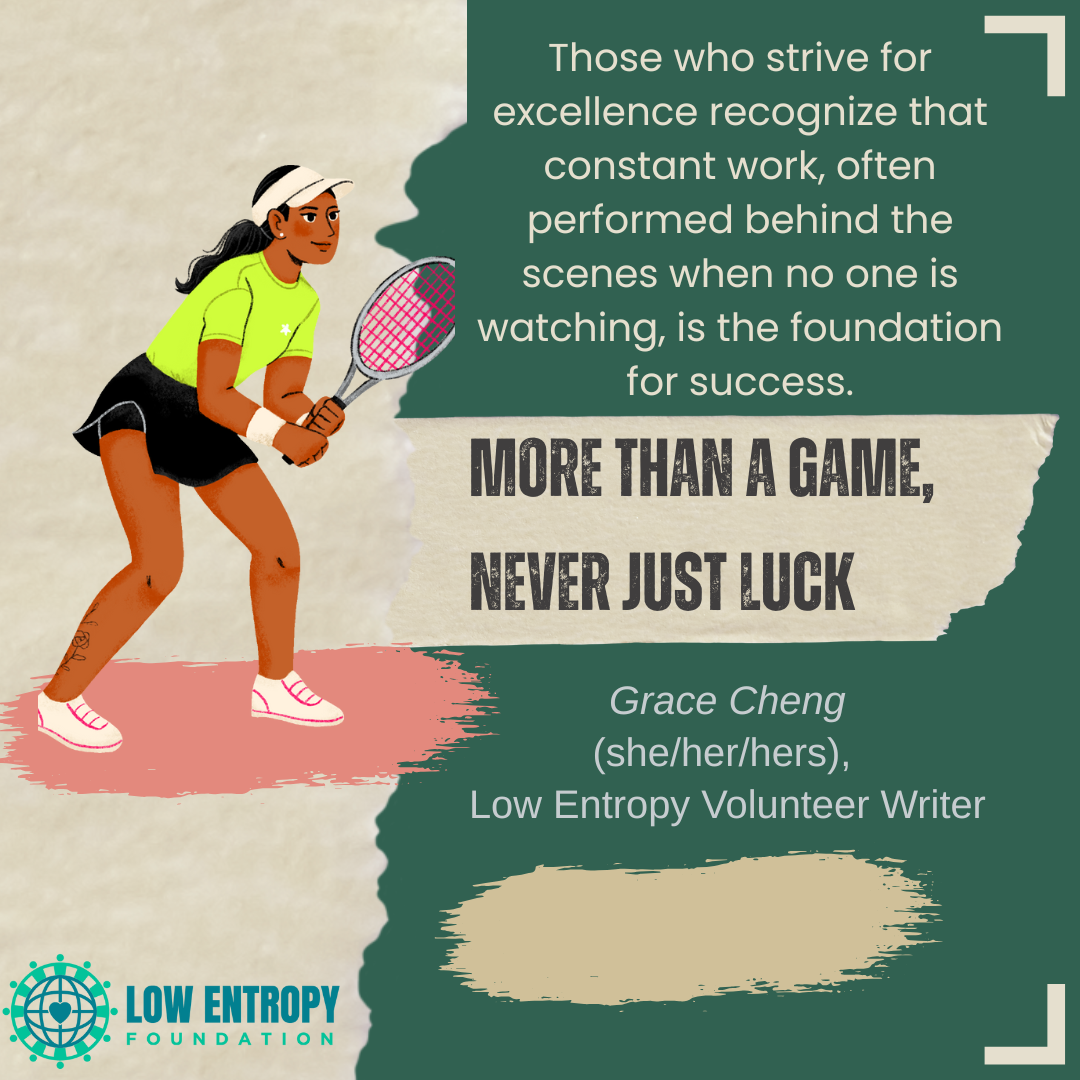Grace Cheng (she/her/hers), Low Entropy Volunteer Writer
The joy of winning, the sting of defeat and the excitement of the crowd do not begin to describe the value of sports, which offer profound educational opportunities that extend far beyond the game itself. The games serve as a miniature reflection of life, providing both challenges and rewards in a place where lessons of character, determination and teamwork are deeply rooted in participants’ minds and hearts. Whether it is playing sports as a child or playing in a professional league, sports provide an opportunity for individuals to develop in a variety of ways that extend beyond physical ability and prepare them for the challenges of the future.
Discipline and commitment are two of the most important lessons that sports teach. Sport success is never a matter of luck. Successful athletes practice relentlessly, refine their skills, adhere to strict training regimens and make sacrifices outside of practice hours. As athletes develop their ability to link effort to success, they come to understand the importance of effort. Those who strive for excellence recognize that constant work, often performed behind the scenes when no one is watching, is the foundation for success. In addition to the dedication demonstrated on the field, this dedication translates into real-life skills, such as setting goals and managing time. Developing a work ethic that serves athletes for the remainder of their lives begins early in the morning, by practicing extra and making smart choices.
Resilience and the ability to confront challenges face-on are equally important lessons. It is no secret that sports are unpredictable, filled with both moments of triumph and crushing disappointment. Athletes learn how to acknowledge their losses with dignity, recover from injuries, rebound from mistakes and remain calm in the face of pressure. Despite missed opportunities, errors and setbacks, they understand that they can learn from them and grow as a result. Adversity builds mental strength – the ability to keep going despite obstacles, to learn from failure instead of being overwhelmed by it and to maintain a positive attitude despite obstacles. Resilience is an important quality to develop in a world full of challenges, helping people develop the grit and perseverance to tackle life’s challenges without giving up easily.
As part of team sports, athletes also learn collaboration, communication and collective responsibility. Teamwork is often more important than individual talent in a team. By participating in a team sport, players learn how to rely on their teammates, communicate verbally and non-verbally, and embrace their role in a cooperative effort. In addition to celebrating group achievements, teams also offer support during difficult times, recognizing that personal achievement sometimes has to be sacrificed for the benefit of the team. In addition, this cultivates essential skills such as teamwork, conflict resolution, listening actively and appreciating a group’s diverse strengths. These abilities can be easily applied to any team setting, such as school projects, workplace collaborations or community efforts, thus fostering the development of individuals who can contribute meaningfully and work well as a team.
Sports also improve strategic thinking and decision-making skills. During competition, athletes must constantly analyze their opponents, adjust to changing situations and make quick decisions under pressure. Basketball players evaluate defenses in real-time to select the best shot; soccer players anticipate where the ball will land; tennis players adjust their tactics after losing a match. Through this fast-paced environment, you will be able to develop the ability to think critically, plan and react intelligently to unexpected events. It is vital to develop these skills not only for sports but also for navigating everyday challenges, whether professional or personal.
A final lesson that sports teach is leadership and humility. Athletes learn how to inspire and guide others, whether serving as a captain, leading by example or motivating a tired teammate. While learning to win with grace and lose without bitterness, they also develop humility. As a player develops a respect for opponents, officials and the rules of the game, it reinforces the notion that integrity and fair play are just as important as the final score. It is through this balance of leadership and humility that individuals are capable of both achieving personal success and elevating others, regardless of the outcome.
To conclude, playing sports is more than just a game. It is a powerful educational tool. In the real world, lessons are not learned from textbooks, but from sweat, triumphs and setbacks. In sports, we learn the discipline to train, the resilience to bounce back, the wisdom to work together, the ability to think on our feet and the strength of character to lead with humility. Athletes are shaped into more than just skilled competitors; they are molded into responsible and capable individuals who are ready to take on the challenges of life with confidence.
—
Grace has an accounting and finance background. She enjoys reading, writing, listening to music, watching movies and playing sports.

